How much land does a man need? This is the question Leo Tolstoy asked himself after realizing that chasing more and more in life would never lead to happiness. In his classic book of the same name, he delves into a tale of a farmer who is rushing through life aiming to accumulate increasingly more land.
The story starts with how a farmer’s wife had a visit from her sister from the big city.
While they were sitting at the table, his wife started to talk – and compare their lives:
“I would not change my way of life for yours, we may live roughly, but at least we are free from anxiety. You live in better style than we do, but though you often earn more than you need, you are very likely to lose all you have. It often happens that people who are wealthy one day are begging their bread the next. Our way is safer. Though a peasant’s life is not a fat one, it is a long one. We shall never grow rich, but we shall always have enough to eat.”
The elder sister from the big city replied:
“Enough? Yes, if you like to share with the pigs and the calves! What do you know of elegance and manners? However much your good man may slave, you will die as you are living – on a dung heap – and your children the same!”
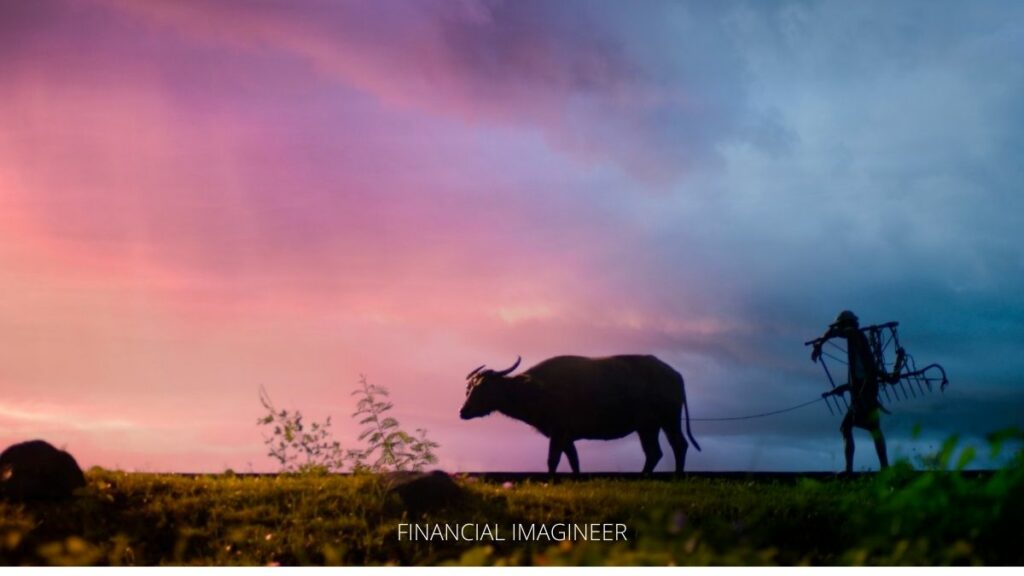
The farmer’s wife shockingly defended herself:
“So what, of course, our work is rough and dirty. But, on the other hand, it is sure; and we need not bow to anyone. But you, in your towns, are surrounded by temptations; today all may be right, but tomorrow the evil one may tempt your husband with cards, wine or women, and all will go to ruin. Don’t such things happen often enough?”
All the time, the farmer was listening and chopped in:
“Busy as we are from childhood tilling mother earth, we peasants have no time to let any nonsense settle in our heads. Our only trouble is that we haven’t enough land. If I had plenty of land, I shouldn’t fear the Devil himself!”
This is just the beginning of this great and valuable story and already all the ingredients for the big question of why “how much is enough in life” is such an essential question are on the table.
Let’s dig in.
1. The Grass Isn’t Always Greener on the Other Side
When we’re not content with what we have, we tend to look at others and compare ourselves with them. “Why does he/she have more than me?” We see the grass as being greener on the other side, but is it?
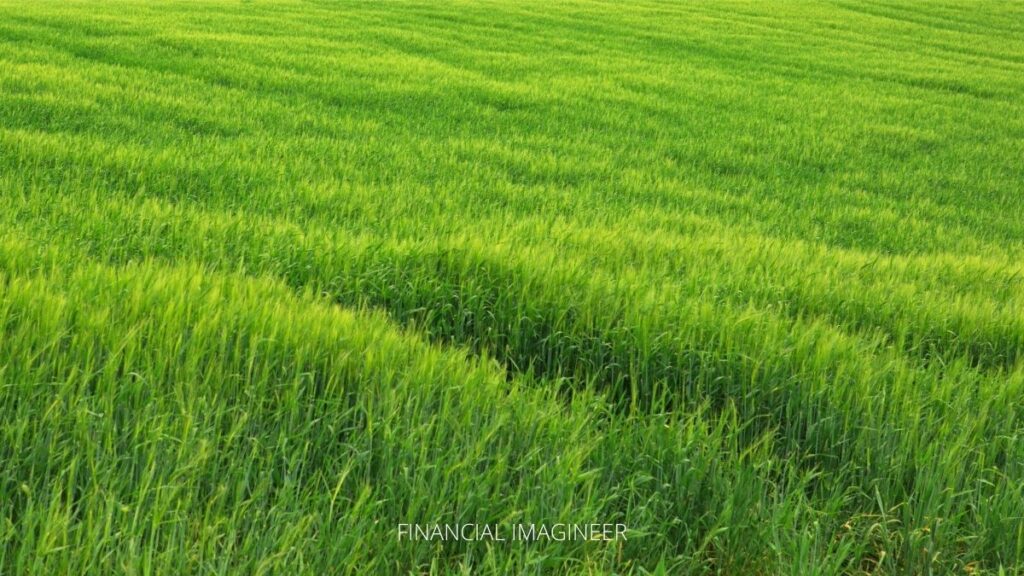
Chances are that others simply show you their life’s highlight reel but if you take a closer look, you’ll realize that the grass isn’t that green.
When we compare ourselves with others, how can we ever be happy? When will enough ever be enough? At some point, you just have to stop looking around and focus on your own life! Click To Tweet“Comparison is the thief of joy.”
Theodore Roosevelt
We will always find something to long for – be it material things like money, cars, better clothes or houses – or non-material things like fame, recognition from others, or even love.
But how often do we realize when enough is enough?
How often are we content with what our lives are like now?
I’m not saying that you shouldn’t strive for more in life, but how often do we look inside and question what our true motives are? I bet that if you did, you would come to realize how much of it is due to social pressure or the need to show others how well we’re doing.
If this sounds familiar, try listing down all your wishes and ask yourself “Why?” until there’s no answer left.
Asking more “Why” questions will help you find your Ikigai.
Maybe at some point you’ll find out that some stuff doesn’t actually make you happy and simply distracts you from focusing on what truly matters instead: Living a meaningful life based on your own values!
2. How Much Is Enough?
How will you measure your life? What is your life’s ambition? To own a big house, a fancy car, and be surrounded by lots of money? Or is it to have a family, good health, and plenty of friends?
Whatever your dream may be, ask yourself “how much is enough”?
Is it really true that more [of these things] will make you happier?
Chances are that once successful people reach their goals, they’ll simply set a new one and the cycle will continue. $1 million will become $5 million, $5 million will grow into $10 million.
This is how the hamster wheel keeps turning, how we keep running the rat race.
Happiness starts by knowing how much is enough!
Sometimes less is more.
The key to happiness lies not in chasing more and more in life.
This will never lead to satisfaction.
In fact, the opposite might happen: We might die with regrets looking back at an unsatisfying life, wishing to have shifted our focus on more important things earlier while we still had the chance to do so.
Focus on what truly matters!
3. Managing Expectations in Life
Happiness is reality minus expectations.
Therefore, the key to happiness is managing your expectations well!
Take ownership of your happiness by focusing on what lies within your control.
Be grateful for what you have. Sometimes having fewer things around us makes us feel lighter and freer. Remember that in the end, we can’t take our belongings with us – only our memories!
This is a highly crucial point for Tolstoy’s story in the end.
So how much land do we need in life?
The story continued by the farmer moving further away from the big city where the land is cheaper.
He bought more land, worked harder and longer, and expected to become happier as a result of his actions.
As you can imagine, this didn’t work out quite as he wished. Therefore, the farmer moved even further towards the east [in Russia] where land was plenty and people few.
He expected to find happiness in increasingly more land, but the more land he had, the more tied up he became through work, lesser time, and increased stress.

Tolstoy concluded with an exact amount of land you need in life by the end of the story.
Before I spill the beans, please bear with me for one more paragraph first.
4. The Cost of Living
Nothing in life is for free, everything comes with a price!
While you are free to try to accomplish any goal you set for yourself in life, it always comes at a price.
Living life is full of trade-offs.
The cost of living is dying.
Learn the difference between price and value.
Eventually, our farmer reached a place where he was told he could have as much land as he wanted.
The catch?
Let’s see!
“And what will be the price?” asked the farmer.
“Our price is always the same: one thousand roubles a day.”
The farmer did not understand.
“A day? What measure is that? How many acres would that be?”
“We do not know how to reckon it out,” said the Chief. “We sell it by the day. As much as you can go round on your feet in a day is yours, and the price is one thousand roubles a day.”
The farmer was positively surprised.
“But in a day you can get round a large tract of land,” he said.
The Chief laughed.
“It will all be yours!” said he. “But there is one condition: If you don’t return on the same day to the spot whence you started, your money is lost.”
The next day, the farmer got up as early as possible and at sunrise, he set out to walk around as much land as anyhow possible. He pushed himself to the limits of his ability and covered more ground in one day than he ever had before. There was barely a rest, he truly exhausted himself and eventually reached back to the starting point just in time before the sunset, upon arrival he collapsed and fell on the floor.
“Ah, what a fine fellow!” exclaimed the Chief. “He has gained much land!”
The farmer’s servant came running up and tried to raise him, but he saw that blood was flowing from his mouth.
The farmer was dead!
The locals around the Chief clicked their tongues to show their pity.
The farmer’s servant picked up a spade and dug a grave long enough for the farmer to lie in, and buried him in it. Six feet from his head to his heels was all he needed.
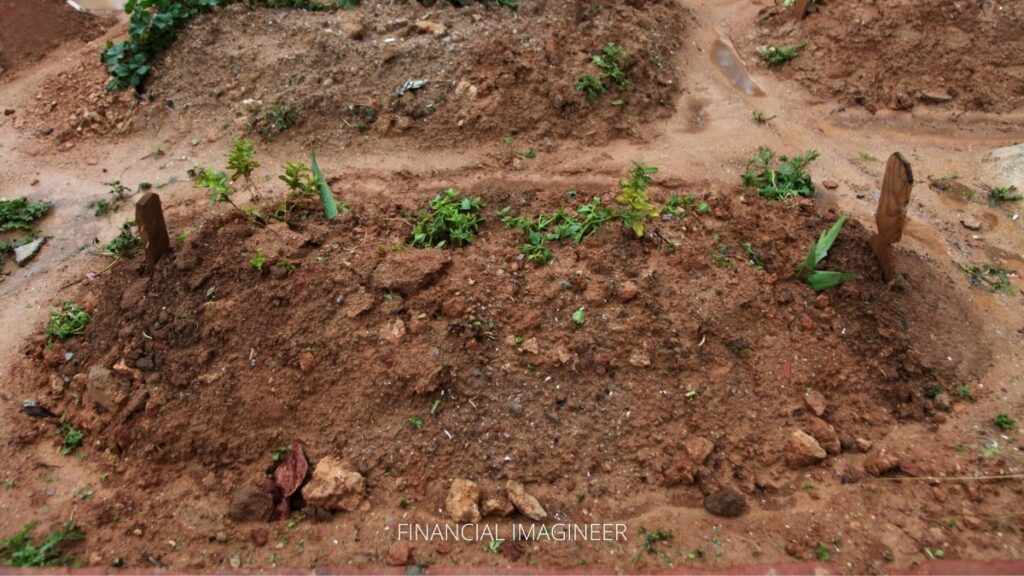
The conclusion to the age-old question of men:
Tolstoy says two square meters is enough.
Click here if you like to read the story or check out the book for yourself [or as a gift for your loved ones].
5. Rich, but Not Happy? It’s Time for a Reality Check!
A few weeks ago, a friend of mine told me how he had met a former colleague.
He said the guy was doing really well:
He had made lots of money and now lived in a big house with his wife and kids. My friend congratulated him on how far he’d come in life and asked how it felt to live such an enviable lifestyle! His old colleague replied that although he was rich, his family wasn’t happy. They were always fighting about something or other, which made him unhappy as well.
“Money can’t buy happiness.”
John Lennon
This is what we call reality check:
Sometimes we think that chasing more will make us happier but when we get there, we realize it doesn’t!
If you think about it, countless pointless lives are being lived around us.
The saddest part about this realization?
Most people living these lives would still have enough time and options available to make a difference.
However, for whatever reasons, they don’t have the guts to change and keep running the rat race until the point where they will be reduced to the two square meters of land we all eventually will need.
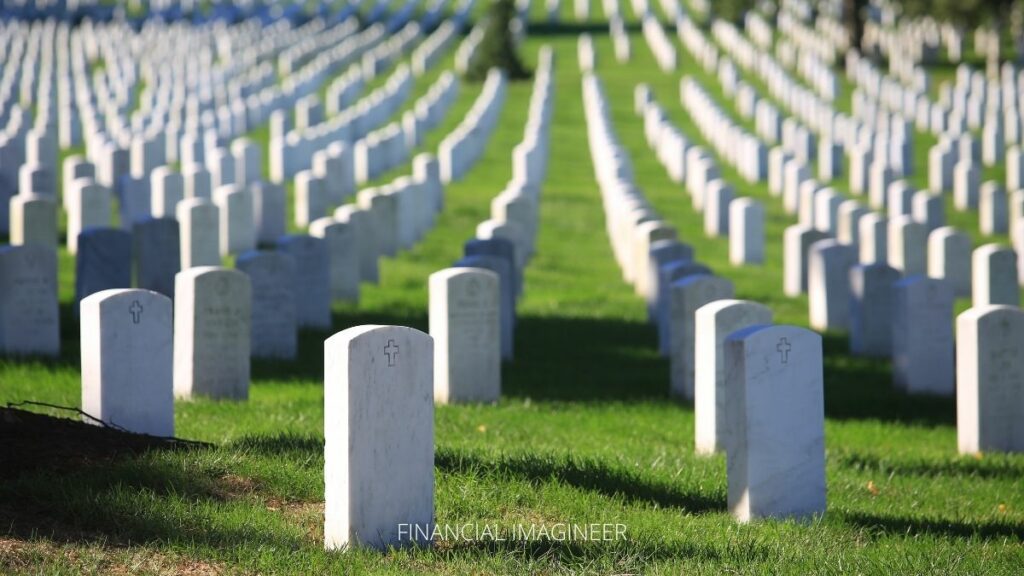
The graveyards are full of indispensable men.
Charles de Gaulle
Today is the oldest you’ve ever been, but also the youngest you’ll ever be!
Today is the first day of the rest of your life!
Time flies, do something with the days given to you.
The past is gone, the future isn’t carved in stone yet and the present is a present because that’s the part we ought to live!
The Finer Things in Life don’t have to cost you your health, money or time!
Conclusion
The moral of this story is how people often lose focus in life by chasing things that don’t matter in the end – like how we spend our time here on earth doing jobs we hate while forgetting what truly matters: family and friends!
What we need in life is not more, but rather to be grateful for what we have and learn how to optimize our lives and manage our expectations!
It’s not how much land but how you use it that counts.
Get your assets off their asses!
In other words, it’s not about acquiring increasingly more possessions but rather using what you have in a way that benefits yourself and others.
Don’t strive for more, strive for better!
Quality before quantity.
Life is not a problem to be solved, but a reality to be experienced.
Try to enjoy it as it lasts!
What about you?
What makes you happy?
- How much is enough for you?
- How do you measure your life?
- How do you make your life count?
Let me know in the comments below!
If you like to re-imagineer your life (financially), feel free to reach out here.
If you enjoyed this blog post consider subscribing to my blog in the box below, give me a follow on Twitter, like my Facebook page and feel free to check out more content here.
Imagineer your life!
Matt
Disclaimer: Please be made aware that the some of the links used above may be affiliate links for which Financial Imagineer could receive a compensation.
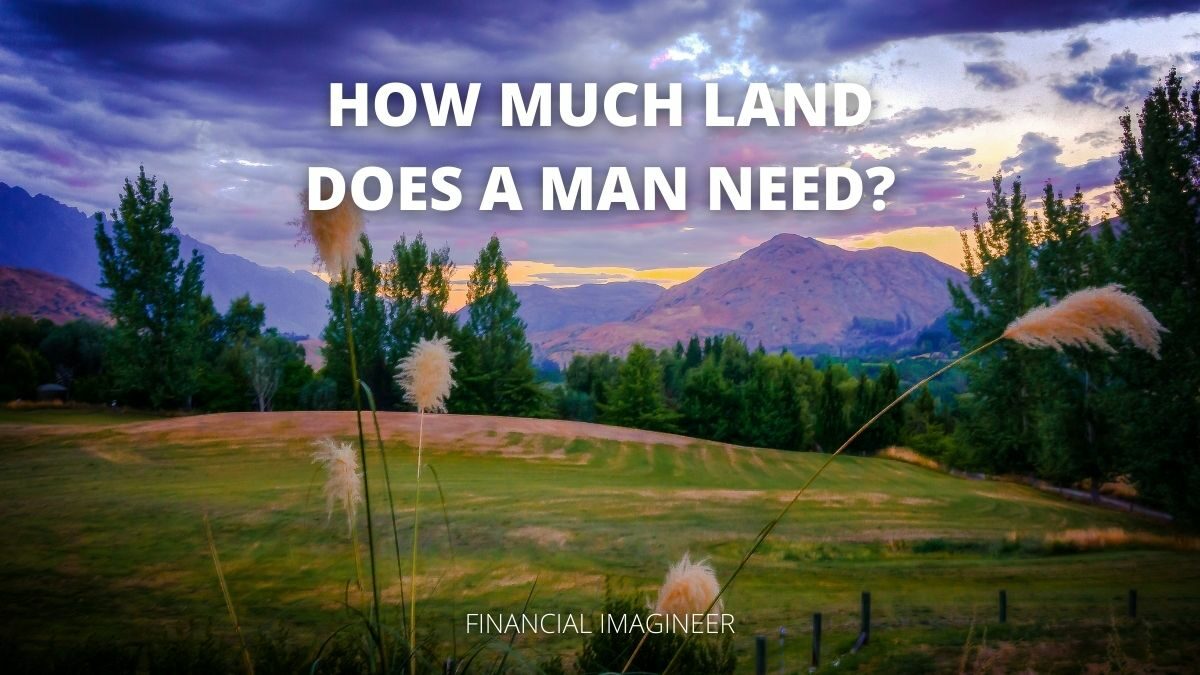
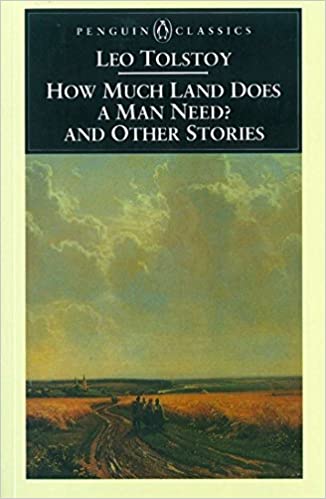
An interesting read. Yes, we are non-stop chasing materials life in the reality. We need money to live better. As long as money can solve the issue, there is always no problem in life. Just that the problem is no money. That’s always the reality. Although we are running around with all sorts of money making opportunity, money may not be able to buy happiness is a little fact of life that we have to appreciate. Time spent with the loved one, a little of care and love is not what money can buy. Your love one give you a little of surprise is always the happiness that money can’t buy. We have to be grateful of what we have to be balance emotionally in life. Live with love!
Thanks Candy,
Yes indeed, while having some money is essential, live a loving life and be content with the people surrounding you.
Live rich!
Matt